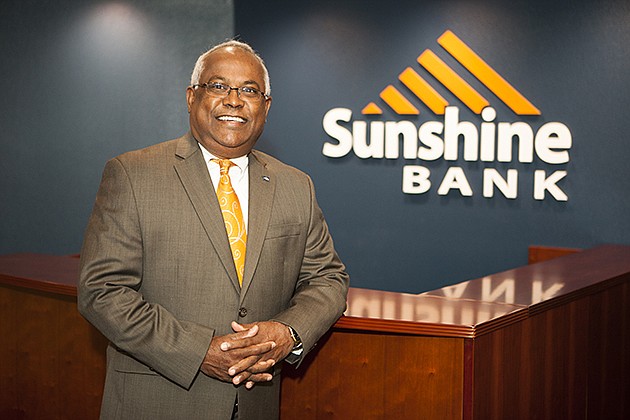- November 24, 2024
-
-
Loading

Loading

Sunshine Bank CEO Andrew Samuel believes a company manual is much more than a standard employee handbook.
The handbook includes benefits and expectations. But a manual, Samuel says, explains “who we are, what we're here for and what we're trying to accomplish.”
A handbook can be copied from one company to another. A manual, on the other hand, really touts what makes you special.
When Samuel started with Sunshine Bank in October 2014, it had five branches with $190 million in assets. Today, the bank has 18 offices with almost $1 billion in assets.
“That kind of growth is unheard of,” Samuel says. “But none of that growth would have been possible without us being unapologetic about our values.”
That's what he focused on in Sunshine Bank's company manual, the Foundations booklet. New employees are guided through the booklet line-by-line on their first day.
Samuel says when he started with the company, he sat down with the board and management team and guided them through a discussion of what their purpose was. “You need a purpose greater than making a few bucks; that's the goal, but it's not the goal.”
A CEO should lead this discussion, he advises, starting with a SWOT — Strengths, Weaknesses, Opportunities and Threats — analysis to understand where you are today, and where you want to go. “Talk through who we are and how we're wired,” Samuel says.
He then tasked the management team with taking the info from the manual and making it part of the “DNA in every department,” he says.
That meant echoing the same values on the corner of every desk in the bank's offices. It meant making these values clear and prominent on the website. It meant incorporating values into all the company's training.
And these values are used in real time. For example, every time staff meets with more than two people, they are asked to share a “Sun-sational story,” or a story that describes someone doing something to further the bank's values. “It helps make your values real,” Samuel says.
Samuel has led acquisitions of three banks in the past two years. He goes through the values in the Foundations booklet before determining if the bank will move forward. And before the company is actually acquired, he meets with the board and all the employees of the targeted company to share the booklet and make sure that Foundations is the first thing they hear. “It sends a clear message,” he says, and allows people to decide if they want to be part of the company.
Authenticity is paramount when building your values, Samuel says, pointing to companies like TOMS Shoes as an example. From its first day, the company's mission was to put shoes on every child in the world. If it wasn't authentic when it said “one-for-one,” people would see right through it, Samuel says.
Samuel says the biggest pitfall to avoid is to treat the company manual as something to check off the list. The attitude of “everyone else is doing it, so we just do it,” is not a good way to start, Samuel advises. “You have to spend real time on it.”
— Traci McMillan Beach